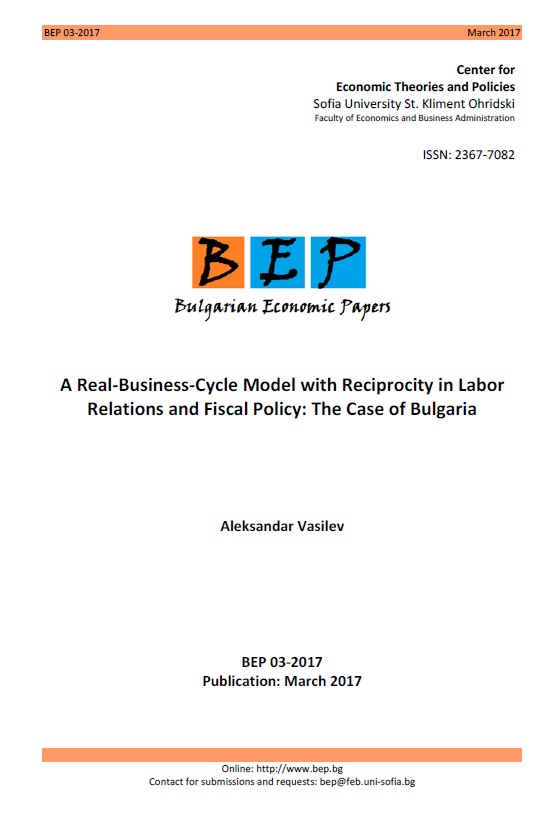A Real-Business-Cycle Model with Reciprocity in Labor Relations and Fiscal Policy: The Case of Bulgaria
A Real-Business-Cycle Model with Reciprocity in Labor Relations and Fiscal Policy: The Case of Bulgaria
Author(s): Aleksandar VasilevSubject(s): Economy, National Economy, Public Finances
Published by: Софийски университет »Св. Климент Охридски«
Keywords: general equilibrium; reciprocity; gift exchange; efficiency wages; unemployment; fiscal policy; Bulgaria
Summary/Abstract: In this paper we introduce reciprocity in labor relations and government sector to investigate how well the real wage rigidity that results out of that arrangement explains business cycle fluctuations in Bulgaria. The reciprocity mechanism described in this paper follows Danthine and Kurmann (2010) and is generally consistent with micro-studies, e.g. Lozev et all. (2011) and Paskaleva (2016), while at the same time comes into contrast with models with efficiency wages of no-shirking type that emphasize the importance of aggregate labor market conditions as the main determinant in wage setting, e.g. Vasilev (2017). Rent-sharing considerations, and worker's own past wages turn out to be the most important aspects of how labor contracting happens. In contrast, aggregate economic conditions, as captured by the employment rate, are not found to be quantitatively important for wage dynamics. Overall, the model with reciprocity and fiscal policy performs well vis-a-vis data, especially along the labor market dimension, and in addition dominates the market-clearing labor market framework featured in the standard RBC model, e.g Vasilev (2009).
Journal: Bulgarian Economic Papers
- Issue Year: 2017
- Issue No: 03
- Page Range: 1-26
- Page Count: 26
- Language: English

